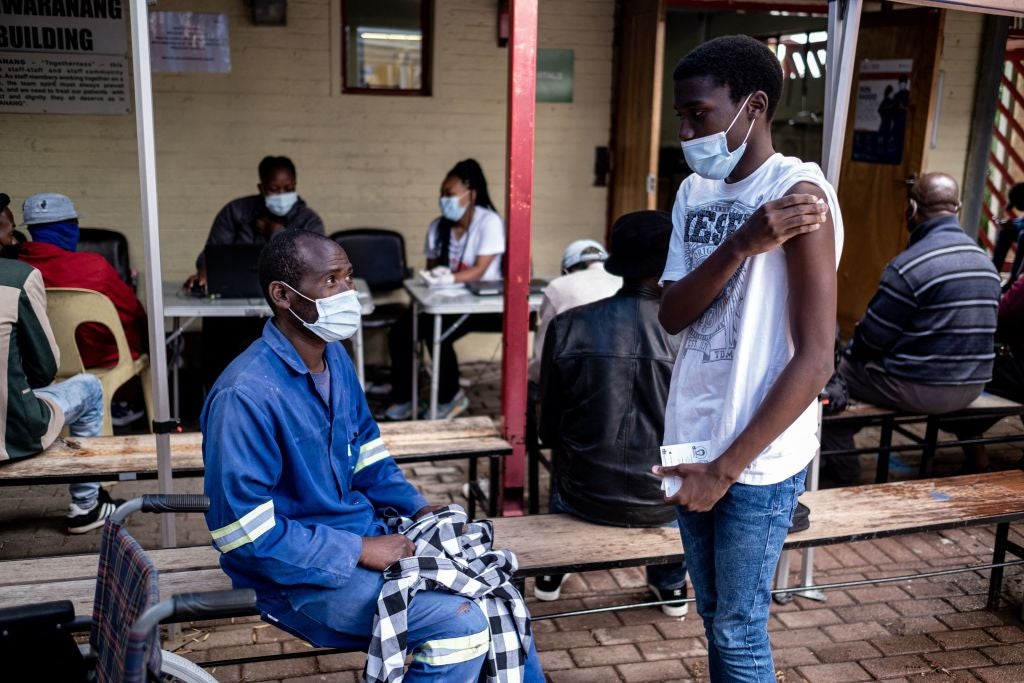The B.1.1.529 variant, more commonly known as Omicron, was first reported to the World Health Organisation (WHO) from South Africa late last month. The WHO has subsequently designated Omicron as a variant of concern based on evidence of a potentially detrimental change in Covid-19 epidemiology. According to the European Centre for Disease Prevention and Control, the variant has swiftly swept across the globe, with 55 countries reporting cases as of 8 December.
With the discovery of the Omicron variant, a number of Western countries have imposed travel bans on people travelling from Southern African countries, despite its identification in many other parts of the world. GlobalData epidemiologists expect that these particularly discriminatory bans are unlikely to stop the spread of the virus and that cases of the new variant will likely continue to increase.
Early last month, South Africa consistently reported fewer than 500 new infections a day. The emergence of the Omicron variant coincided with a sharp surge in Covid-19 re-infections in South Africa. According to GlobalData epidemiologists, new daily confirmed cases in South Africa peaked at around 38,000 cases on 12 December, at the highest recorded levels throughout the pandemic thus far. Further genomic sequencing studies are, however, required to conclusively determine whether this variant is driving the newest surge in infections.
Additional research is also needed to address questions surrounding the variant’s transmissibility and severity. There is also a concern that the current vaccines, which were designed against the original Covid-19 strain identified in Wuhan, will be less effective against the Omicron variant. Preliminary data, however, show that receiving a third booster dose will still provide an extra layer of protection and is strongly recommended amid the emergence of the Omicron variant.
Vaccine manufacturers have estimated that by the end of the year, 12 billion Covid-19 vaccines will have been produced. This is more than enough to vaccinate the entire world. Despite this, according to Our World in Data, only 7.1% of people in low-income countries have received at least one dose of a Covid-19 vaccine, relative to the 56% global average. High Covid-19 transmission associated with low-vaccine coverage areas increases the chances of new variants emerging.
As such, this gaping inequity in global vaccination rates only further ensures that new Covid-19 variants will continue to emerge. This issue will persist until each country can reach some level of herd immunity, in which at least 60–70% of the population is fully vaccinated.

US Tariffs are shifting - will you react or anticipate?
Don’t let policy changes catch you off guard. Stay proactive with real-time data and expert analysis.
By GlobalDataAt this point in the pandemic, variants of concern are a common problem. The understanding of the epidemiology of Covid-19 and of control interventions necessary to prevent its spread has improved greatly since the beginning of the pandemic, yet mistakes from the pandemic’s early days continue to be repeated. There is no evidence suggesting the Southern Africa travel ban will effectively stop the spread of the Omicron variant.
The variant is already present in the US, with evidence that it may have been circulating in Europe prior to its identification in South Africa. Equitable global vaccine access and distribution should be the priority going forward, as it is likely one of the most effective tools against the spread of Covid-19 and combatting the cyclical emergence of new variants of concern.





